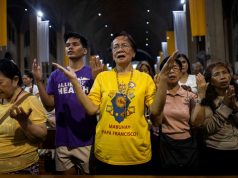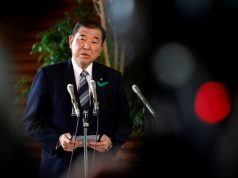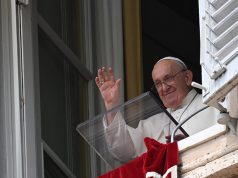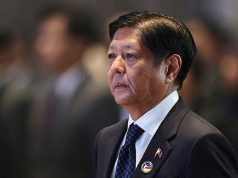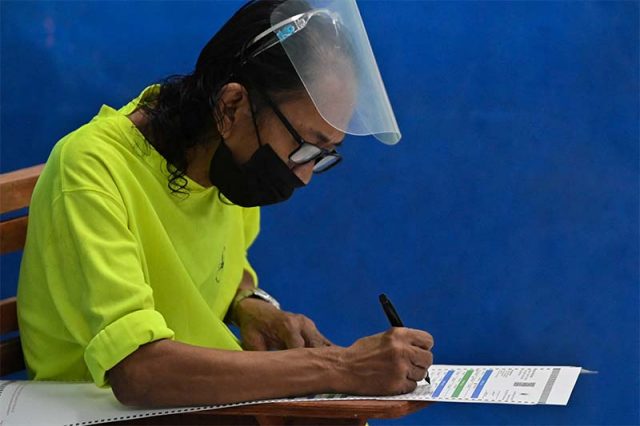
Campaigning began on Tuesday for the Philippines‘ election on May 9 that will decide thousands of positions across the archipelago nation, including who will take over from Rodrigo Duterte and become its president for the next six years.
Below is a rundown of what to expect.
What’s being decided?
Roughly 67.5 million of the 110 million population are eligible to vote and the vast majority of ballots will be cast on election day.
Posts contested include the presidency, vice presidency, 12 senate seats, 300 lower house seats, and roughly 18,000 local positions, from city mayors and provincial governors to local council seats across a country of 7,000 islands.
On a single ballot paper, each voter must select one candidate for each of the national positions, and their choice of congressional representative, governor, mayor, councilors and more. Winners serve three-year terms, except for the president, vice president and senators, who serve six years.
READ: Philippines shifts election battle to social media as COVID-19 curbs campaigning
Who are the presidential contenders?
Ferdinand Marcos Jr, 64, the son and namesake of the dictator overthrown in a 1986 “People Power” uprising, is the clear leader in opinion polls, and is promising unity.
Marcos is a political heavyweight from a family with wealth and powerful connections. His critics say him winning the presidency is the Marcos family’s endgame in whitewashing a controversial past. Marcos says he wants to serve his people.
The other main contenders are Vice President Leni Robredo, Manila mayor Francisco “Isko Moreno” Domagoso, retired boxing icon Manny Pacquiao and Panfilo Lacson, a former police chief.
RELATED: Key contenders for Philippines 2022 election
Does the vice presidency matter?
The vice president is largely ceremonial with no real power unless the president vacates office. However, during election campaigns, running mates can be powerful allies in rallying their supporters behind presidential candidates.
Marcos could be one such case, having secured as his running mate the incumbent president’s popular daughter, Davao mayor Sara Duterte-Carpio. Her support in the south – historically a weak spot for the Marcos family – could see him triumph.
Unlike in many countries, the vice president is elected in a separate contest and may not be an ally of whoever wins the presidency. That leaves open the possibility of major political upheaval should the presidency change hands.
How important is the overseas ballot?
Very important. Millions of Filipinos have either settled or taken up employment overseas. Their incomes can be far greater than at home and their billions of dollars remitted each year sustains families and drives the Philippine economy.
As breadwinners, the 1.7 million registered overseas Filipino voters – and many other Filipinos abroad – can be key in influencing the voting choices of their families back home, hence many candidates try to court their support.
How soon will the winner be revealed?
The winner of the presidency is often known in a matter of hours, with vote counting underway as soon as ballots close.
In recent polls, the Parish Pastoral Council for Responsible Voting (PPCRV), a vote counter accredited by the election commission, has broadcast its unofficial count in real-time on television and online.
The president-elect has about seven weeks before being sworn in, during which time their transition team works on policy plans and sounding out potential cabinet members.
What about political parties?
In the Philippines, political parties have tended to be secondary to personalities, with loyalties shifting very easily.
Widespread defections are anticipated and elected lawmakers will often ally themselves with whoever becomes president, although rivalries and ideological differences will ensure a political opposition exists.
Endorsements of celebrities, influencers and political incumbents carry enormous weight – far more than party affiliation – and many voters make choices based on how famous candidates are. Dynasties are also powerful, like that of Marcos, with families holding elected posts for decades.
Are Philippines elections credible?
Though vote-buying, political violence and most recently, glitches with electronic voting machines have been problems in the Philippines, fraud on the level that would cast doubt on the credibility of polls or their outcome is very unlikely.
Independent poll monitor the Asian Network for Free Elections concluded that each of the most recent Philippines elections were generally free and fair, with turnout remaining high at about 80%.
—Editing by Angus MacSwan




